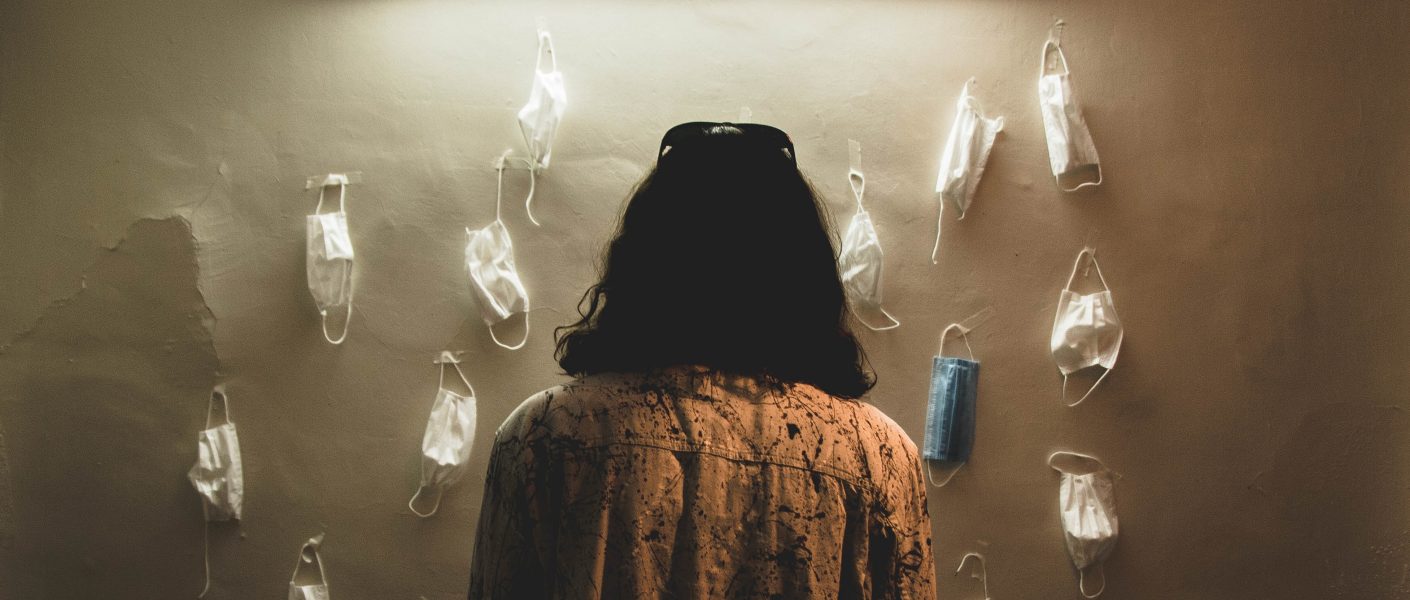Let’s recall in the not-so-distant past when COVID stress wasn’t even a thing. Back then, you had choices. Picking and choosing who you see, when you see them and what you do together. Back then, you had options, lots of them. Now, things look very different, and your once free choices are a thing of the past. Contact with people now is imposed by strangers who don’t know you or what you need.
These feelings are new territory. It’s out of your control, and that’s scary—Cue anxiety.
Let’s acknowledge this for a moment. How seemingly overnight, there are rules and restrictions imposed on your life like never before. You do not have choices or free movement. Let’s acknowledge that this is the most significant health crisis in living memory. Early on, our government didn’t know what to do to protect us. That we didn’t know what to do to protect ourselves.
Now add potential or actual job or income loss, distance from loved ones, constant news about infections rates and death. But your life hasn’t slowed down because you have bills to pay, kids’ mealtimes, bath times, home-schooling, work or lack-there-of, sickness…
While we don’t need research to know everyone is struggling, it has provided a noticeable snapshot of the struggles impacting those most vulnerable.
The Impact Of COVID Stress Has Been Huge
This pandemic’s toll need only be seen in the faces of those who have suffered indescribable heartache—grief from the loss of loved ones, from a loss of future, security or hope.
Unsurprisingly, mental health amongst the general population has declined this year. Symptoms of mental ill-health have increased in people who may or may not have had mental health challenges in the past. Not coping is evident and apparent in any long but non-exhaustive list of symptoms related to COVID stress.
Awareness is key to early intervention for yourself and your loved ones. What are the signs and symptoms to be mindful of that may need further attention?
- Increased anxiety, fear or panic
- Depression or evidence of low mood
- Emotional disturbance or changes in mood
- Sleeplessness
- Stress responses, such as irritability, anger, or emotional withdrawal
- Boredom and associated behaviour changes such as out-of-control drinking, gambling or drug taking
- Loneliness or isolation (forced or otherwise)
- Emotional and mental exhaustion/fatigue
- The worsening of existing mental health conditions
It is a little wonder your anxiety is through the roof with all of that said. Why your stress levels have skyrocketed. Why your loneliness has reached an all-time high. And your ever-bubbling pool of emotions is simmering an inch below your level of coping. Because this year has been huge.
Know that you have validation to feel exactly what you are feeling at the level you are feeling it. But avoid sitting in this feeling. Be active in recognising how you feel and aware of how others are travelling.
Research also tells us that resilience and a reliable support system are key protective factors to increasing our ability to cope and be ok.

Tips To Manage Stress
You can do lots of things to keep in check and feel some control during an out-of-control situation.
Check-in regularly with yourself
Ask yourself, how are you feeling? Trust you know how to recognise changes in yourself and that you have the resources to seek support and get help.
Manage exposure to social media
Thankfully, this is something that you can control to minimise COVID stress. Limiting or reducing your exposure to the chaos on social media means you have more control over what you are reading, how much you are reading, and its impact on you.
Calm but aware, don’t panic
So much of what is happening creates a natural tendency to panic. There is a need to try and scramble back some control to find meaning in what’s going on. Panicking doesn’t help to feel less helpless; it will increase your anxiety, creating more panic. Remain calm and retain rationality.
Maintain a healthy diet
Cook and eat well to fuel your body and mind. It’s easy to get into a poor eating routine, so awareness, routine and preparation are key.
Be aware of your drinking habits
There has been a sharp spike in alcohol sales since COVID first hit. Be mindful of your intake and use of alcohol to avoid falling into the using drinking as a boredom filler or a coping mechanism.
Routines Are Important
Keep up a routine and be consistent
This is a big one. Much of our routine that creates emotional and psychological safety and predictability has been hijacked. For months we have not been able to do the things that make us, us. However, this list provides examples of how you can retain some normality.
Exercise at home or outside where possible
If you can’t make it to your gym or a class, then do what you can, where you can. Keep moving. This is a sure way to release some cabin fever, increase endorphins and feel more energised. Good physical health and mental health are positively linked.
Sleep well
Rest your body and your mind to release anxiety and be well. If you are not working, this still means routine and getting solid amounts of sleep are important.
Get Support
This can mean checking in with your GP. It could mean skyping a psychologist or counsellor. It might be contacting one of the free helplines like Beyond Blue, COVID Mental Wellbeing Line, Lifeline, or Kids Helpline if you’re under 25.
Create, increase or simply check in with your social networks. Be there for each other and support each other through this.
Try guided or self-guided meditation or mindfulness activities to stay in the here and now. These practices help reduce anxiety and fear of the unknown by focusing on the present.
Let’s be kind to ourselves and others. Look after yourself to remain ok now and when this is all over.
If you or someone you know needs support:
Beyond Blue 1300 22 4636
Lifeline 13 11 14
Kids Helpline 1800 55 1800
Photos by



